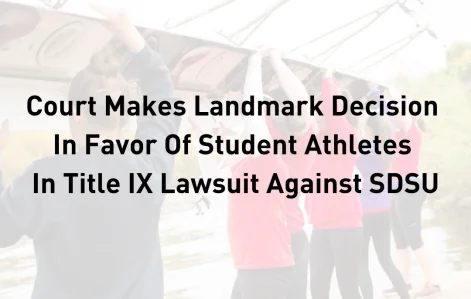Millions of Americans make their living mostly or entirely through remote work. Whether this means working from home or on the go, it’s a fact of life for many that they’ll almost never need to set foot into their employer’s office.
Despite a lack of physical proximity to coworkers and supervisors, however, misconduct such as sexual harassment can still harm employees. It’s a fact most don’t consider until the offender’s intentions become clear or an event is so abrasively apparent that it makes an employee feel unsafe even in his or her own home. Let’s examine what entails sexual harassment for workers under any circumstance and how they might apply to situations where an employee is working remotely.
What Is Sexual Harassment?
As a matter of law, sexual harassment is any unwelcome conduct of a sexual nature that can occur as an isolated incident or be so frequent or pervasive that it creates a hostile work environment. Physical examples of sexual harassment are rather obvious to many: unwanted touching such as grabbing, kissing, fondling, sexual assault, and other actions that involve any part of the offender’s body coming in contact with the survivor.
Because one is working remotely, it’s possible that he or she is experiencing none of these physical acts of sexual harassment. That, however, doesn’t mean it’s not taking place. There are plenty – if not more – ways a person can engage in acts of sexual harassment without ever touching the survivor.
Non-Physical Sexual Harassment Can Occur Anywhere
Whether it’s in the office or several time zones away, various forms of non-physical sexual harassment can occur without regard for physical proximity to the survivor.
Acts such as these can constitute sexual harassment:
- Comments of any kind made in an email, instant message, text, or verbally over the phone about a person’s appearance or body as well as their real or perceived sexual activity (even if the recipient is not the subject of such comments)
- Sexually explicit comments or jokes, even if made in passing or without a direct recipient
- Requesting sexual favors, be they physical or non-physical (such as sending suggestive photographs and communications)
- Sending sexually explicit or offensive images, including photographs, videos, drawings, etc.
- Cyberstalking and other attempts to invade one’s privacy online
These are not the only ways someone may experience sexual harassment. As with most employment law violations, there may be unique situations that seem to fall into a gray area where it’s difficult if something crossed the line into sexual harassment. An employment law attorney can help you by learning about your situation and providing advice on how you can move forward.
Quid Pro Quo & Working From Home
When someone asks for a sexual favor in exchange for an employment perk (or to prevent adverse actions like firing) is known is quid pro quo sexual harassment. Latin for “this for that.” Quid pro quo is particularly pernicious because it involves a great deal of manipulation upon the receiving party.
While a sexual favor in this context would mean a physical sex act in most cases, remote workers could be survivors of this form of abuse, too. Requesting suggestive photographs or videos in exchange for a raise or career advancement may be enough to satisfy a quid pro quo sexual harassment claim. Even requesting explicit text-based conversations or verbal ones over the phone in exchange for similar employment-related matters could qualify.
Get a Lawyer To Help You With Your Claim
If you’re working remotely and believe you are a survivor of sexual harassment from a coworker, supervisor, or another individual associated with your employer, reach out to Haeggquist & Eck, LLP for help. We are an employment law firm whose attorneys are highly experienced at handling employment law violations of all kinds. We often see sexual harassment cases come through our doors, and we have the experience and skill necessary to help you get the best possible result.
If you need legal assistance, take advantage of a free consultation with one of our attorneys. Contact Haeggquist & Eck, LLP online or call (619) 342-8000 to request a complimentary consultation today.





